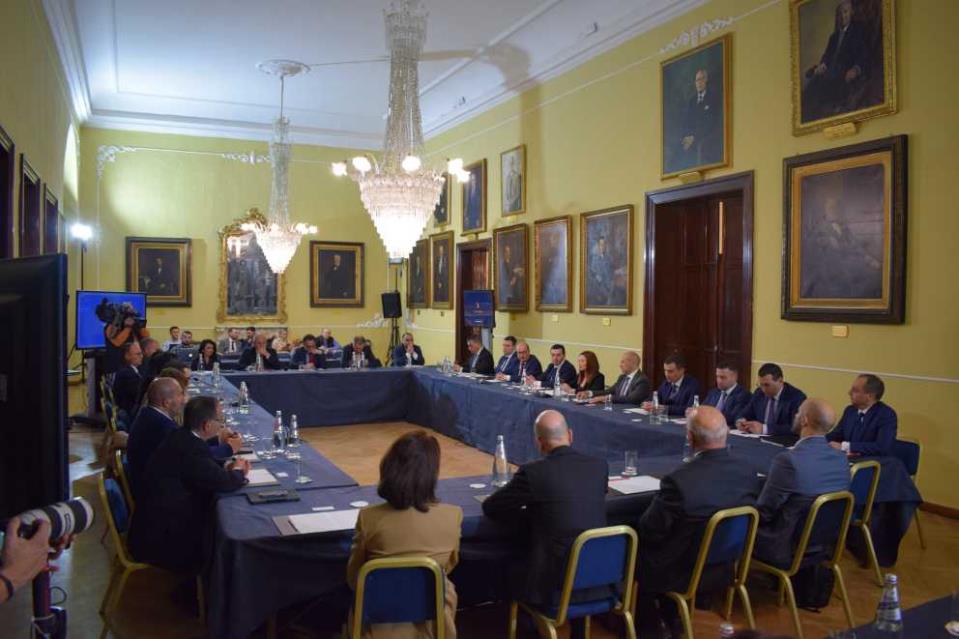The Malta Chamber of Commerce has called for national reforms for the upcoming legislature to curb effects of the Ukrainian conflict, as well as worldwide inflation.
The Chamber met with Ministers at the Malta Chamber Main Hall in Valletta to speak about the government’s priorities for the next five years. The Chamber re-presented its document of recommendations, ‘Time to Step Up,’ to the Ministers.
President of the Chamber Marisa Xuereb said that the current problems the nation is facing must be addressed with urgency, and that the worse the Ukrainian conflict gets, the greater the economic, social, and political damage.
Xuereb addressed the price inflation which is primarily coming from importation and transport costs.
“Transport is a substantial element in our consumption, production and exports, and we need to discuss it with more determination at European level. The Freeport also needs to continue to serve its strategic function which is likely to be undermined if cargo ship operators make purely commercial decisions that go beyond Malta on their routes,” Xuereb said.
With regards to food, Xuereb proposed the investment in local agriculture as well as mechanisms for the buying and storing of wheat to address the substantial rise of prices for raw materials.
“While we cannot expect the Government to subsidize everything, and just as prices are rising for us, prices are rising for everyone on the international market, our smallness means strength in the market of our operators,” Xuereb said. She added that other costs for operations could become more efficient to help businesses avoid extra costs burdens.
Xuereb said that elements which affect businesses, such as ESGs, energy, transport, environment, planning, health, education, foreign investments and good governance certainly must not become political.
Xuereb said that practices which promote a culture of clientelism gives way for less transparency and inefficiency. She emphasized that there needs to be regular contact between the Chamber and the government to better help Maltese businesses, and a zero-tolerance policy for abuse from persons in political positions.

She called for a necessary balance between development, the environment and cultural heritage.
Deputy Prime Minister Chris Fearne acknowledged the need for private enterprises to flourish and the government has the role of the ‘regulator’ to ensure that businesses are in line with fiscal and social governance.
Fearne said that ease of doing business is something to be addressed, and that the government will work towards facilitating bureaucracy and reduce the problem of risk management.
“As a government we will also work on increasing skills for the workforce, not only academically but also vocational,” Fearne said.
Fearne also spoke about the importance of Maltese businesses and enterprises penetrating the international market to promote growth in the private sector as well as generate wealth for the country.
He said that millions will be invested in the environment sector to continue to greenify the country.
CEO of the Chamber Marthese Portelli gave a presentation on the reforms expected from the government for the upcoming legislature. She said that work must be done on national reforms, including institutional reforms, education reforms, public procurement and pension reforms.
Portelli said that the mandatory membership of trade unions which the PL proposed during its electoral campaign must be removed and one should be free to join a union out of their own free will.
Portelli called for reforms in several institutions, such as the Ombudsman, Transport Malta, Customs, waste management as well as Planning Authority, among others.
Minister for the Environment and Energy Miriam Dalli acknowledged that dialogue must be kept with social partners. She said that the government has an ambitious plan so that bureaucracy in businesses is decreased and public procurement becomes more just and transparent. She added that this is the key for a more modern, resilient and vibrant economy.